Pink, directed by Aniruddha Roy Chowdhury, has been running successfully in screens across the country, and has received critical acclaim as well as some very strong reactions by an impassioned audience. The film has become more of a statement, and is being hailed as perhaps the year’s most important mainstream watch.
While the three girls and Amitabh Bachchan have been lauded for their performances, one of the film’s most memorable and menacing moments belonged to an everyday “villain.” Vijay Varma, the level-headed man behind the ‘outsider’ and most terrorising face of the four males in Pink, has been noticed for his uncomfortably real turn as the typically repulsive chamcha of the rich brat (Angad Bedi). And, of course, that scene in the moving car.
Here, CHINTAN BHATT speaks to him about the role, his experience of working in the film, that scene, and his young career so far.
Congratulations on the film. It seems to be doing very well. What is the feedback you’ve been getting?
VV: …that it’s completely expected out of me! [laughs] Actually, I was briefed during the casting itself that I had to play it in such a way that people would want to slap me as soon as they watched the film. The more they hated me, the better I’d have done by job.
And overall, did you expect the film to become such a big deal?
Honestly, no. I knew that my character was written to create a certain amount of terror in the viewer’s mind. That was the ‘expected’ part, but the film doing so well and people completely loving the film and making it a success even box-office wise? — I didn’t see that coming. I’m just a new guy doing his job. The rest I can’t predict, and it’s quite a bonus.
How did you get the role?
I auditioned for it. Jogi Malang, the casting director, who is also an actor and has a role in the film too, called me for the audition. So I did two scenes: the first was the phone conversation where I’m not on screen — only my voice is heard, as I call the landlord and tell him rather ominously to get rid of the three girls from his flat. The second one was the molestation scene. I hadn’t done something this extreme before, so I wasn’t sure I’d be able to crack it at the audition, and even if I did, how would this make it to the film? Would I be okay with doing something so out of character? Despite these reservations, Jogi ji told me the next day itself that I had been selected. The director had loved my take. I was very excited, because I’m not even from Delhi…
Really?
Never stayed more than three days in Delhi. I’m from Hyderabad. I tried my best, and it worked.
So how did you manage the Delhi accent? Did you use it during the auditions, or did you work on it for the film later?
I picked it up from all the films I’ve watched, and from the friends I have. I learned a lot after I got the role too. I took it very seriously, because I didn’t want to squander the opportunity. It may have been luck or ability that I was selected, but I had to respect it. I’m a big fan of Dibakar Bannerjee’s films — the way he represents Delhi, its language, tone and its lived-in characters. I wanted it to be that authentic. I was probably the first boy to get cast, so I had more than a month to perfect the mannerisms. I got hold of a friend from Delhi to help me with the lingo and a bit of Punjabi. I was ready to ‘spontaneously’ break into Punjabi during the film too, but they decided not to go with it because it’d become a little inconsistent with only one character doing it. But I was prepared anyway: for that phone conversation with the landlord, I could have done it in both languages. Sitting with the director and tracing my backstory also worked to an extent. But my major supplement for this character came from TV reality shows — Ankit’s behaviour in the film is like a face straight out of a Roadies Delhi audition. One sees a lot of passive aggressive chauvinist behaviour on there. So many of those contestants are really *out there* when it comes to being the epitome of the typical male superiority complex. I picked up nuances from two or three such characters from these shows.
As for the molestation scene, my reading was that this guy would do it to anybody, not just a girl. He is just enjoying being drunk with power and putting people down — irrespective of their gender. He doesn’t discriminate that way. Because of his upbringing, he has probably heard all sorts of ridiculous things about the differences between boys and girls, about how one of them has longer noses or bigger stomachs. Those sorts of things. I just imagined him to be a torrid product of this environment.
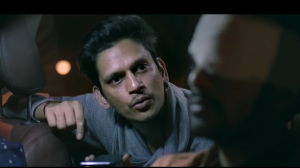
The molestation scene in the car. How do you prepare for such a thing?
I had read the scene, but we never quite attempted it during the workshops. We had attempted other things, like bonding scenes between the guys. Since Ankit (my character) hasn’t met the girls in the film up until that point, I wanted to feel that element of newness and unfamiliarity too. But my biggest concern was to overcome the mindset and reservations I had as a person to actually hit a woman. It was a huge deal for me. I was always uncomfortable about it, but I couldn’t let these feelings harvest inside me on set. In order to film it, I just told myself repeatedly that this is not a boy or girl in front of me but just a person I don’t like. The makers had taken a great call too: We were very clear on the fact that this chap didn’t want to sexually molest her. He didn’t want to “have” her. He wanted to terrorise her; he wanted other men to have her. He wasn’t in it for his own satisfaction, but wanted to show that he was so superior that he didn’t even want her. That she wasn’t even good enough for him. That was what I was trying to portray, and hopefully even people perceived it like that.
The atmosphere on the set was very professional, as was Taapsee, who was ready to put herself into that scene. We thrashed it out in two takes, fortunately. It went off quite smoothly after a few adjustments from the first take. There were two cameras in the car, and as soon as the director and producers saw the footage on their monitors, they okayed it — without being able to watch all of it. They knew they had it. So I would say I broke some barriers, but I had to really train myself to think I’m not going all the way.
Are you worried about being typecast after such a role? That’s a general worry for most newcomers into the industry.
I’m not afraid of being typecast. The audience today is educated enough to distinguish between the actor and his/her past. We no longer have filmmakers who would give actors the same kind of roles for years. I already have a bank of interesting versatile characters in films that are yet to release. In Monsoon Shootout, I play someone completely on the opposite side of the spectrum — a noble, sensible, disciplined, ethical guy with integrity. In Tigmanshu Dhulia’s Yaara, which should come out next year, I play a flamboyant gangster/womaniser and cover a timeline of 20 years age-wise. Honestly, I’m not too worried; I’m just happy that people are being affected by what I do in these films. I’d love to leave it at that right now. If they feel a certain way about my characters, I would say it’s a big achievement for me as an actor. And hopefully I’ll be able to do this more than just this once.
Could you tell us a little about how you got into acting?
As a child, I wanted to look as beautiful and handsome as the stars I saw on screen. It was an embarrassing thought. To even express it to people close to me, like my parents, who would surely not understand. I didn’t really pursue this angle until I saw Mahesh Manjrekar’s Vaastav — where I think it was the first time I realised that one doesn’t need to look perfect to act well and recite great lines. It became a cult amongst us friends; we used to imitate Dedh Footiya, and quote Sanju Baba’s chaalis tola dialogues all the time. These characters felt so real, because I didn’t watch many films while growing up. We weren’t allowed to watch films on television by my father those days. I never grew up watching the classics either; I had not seen Sholay or Deewar, or the 80s films like Qayamat Se Qayamat Tak and Maine Pyaar Kiya. I had only heard songs from them, or other friends talking about how good they were. I had seen Shah Rukh Khan and Salman Khan, and I realised instantly that there was no way I could beat this. That’s why I found Vaastav interesting. We would fool around, and people would laugh — or at least respond — to our mimicry. That gave me the confidence to open up and say I wanted to be an actor.
I tried modelling for a while in Hyderabad but it didn’t work. I had a couple of bad experiences. The glamour was a world apart from what we see on screen. It wasn’t for me. Then I saw an advertisement for the FTII acting course and decided to give it a shot. I applied. Nothing to lose, really. I went for the written examination, and was happy to receive a call for the personal interview and audition. I somehow cracked that, too. Then I went for the FTII workshop — a four-day workshop where 20 actors are chosen for the course out of the 80-100 called for it. This was the year the acting course was supposed to restart, back in 2004. So I came back, confident and excited.
Soon after, I received a letter of rejection. It hit me really hard, not because I was rejected for the first time, but because I had tasted what the place is about and had come so close. I had lived the kind of life that I idolised and dreamed of. It was the first time I felt truly depressed. For two months, I moped around. In hindsight, what I did later on probably gave me an insight into what I was going through at that time. One day I just decided I wanted to do theatre; I wanted to become a better actor. I went to this acting school called Sutradhar in Hyderabad. It wasn’t easy; they were really tough on me for a week, trying to convince me that I wasn’t meant for this and that I was just chasing the glamour. They usually do that to test your temperament and drive. I was then taken in. I did workshops for three months, got into a production, and somehow things just clicked after that. My stage performance got a fabulous response from people. For the first time in my life, I had received such appreciation, and people were happy seeing me do it. I had tried jobs until then — marketing, sales etc. — just like most youngsters who wanted to stay away from home. I even tried a call-centre job, made 150-200 calls a night, but I was just so unhappy. It didn’t feel right. That experience on the stage was so blissful for me. All my fear and nervousness soon disappeared and I just felt at home. I kept growing very well. I went back to FTII and applied again. This time, I was well prepared. Finally I was surrounded by like-minded people who lived and breathed cinema, in a space I belonged. I am very proud of the amount of films I’ve watched in those two years — at least one or two a day. Evening screenings at the main theatre, followed by a post-dinner film back in my room. I caught up on a lot of cinema — I watched Sparsh for the first time, so much of Ray, Ghatak and more. It wasn’t so much an effort as it was an all-out dive into a life I knew I deserved. All the knowledge I acquired — everything I know about cinema today — was a gift from FTII to me. More importantly, my understanding of good and bad came from these two years.
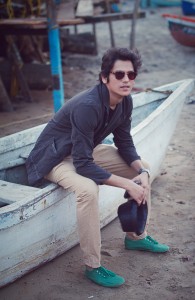
How did you land your first film after that?
I came to Bombay, and realised immediately how difficult it is to arrest someone’s attention. It was going to be a long haul. I had to keep my mind occupied. I started doing theatre — did it with Tom Alter for a year-and-a-half. It was good to work on one part, one play, even if it was only once a month. That kept me going.
Around 2010, I landed an audition with (casting director) Honey Trehan for Chittagong. For the first time there was no camera — just the director (Bedabrata Pain) sitting there and watching. That is a great high for an actor. It’s different when you watch in person; you catch the nuances and behaviour on the spot like that. I wanted to work with him, and it so happened that he liked what I did. He selected me for the film, but was unsure about which role I should play. It was either the role that I eventually played (Jhunku) or the role of Lokanath (eventually played by Rajkummar Rao). Either way, I was very happy this would be my first break. I had actually gotten a role before this, but it was shelved fifteen days before the shoot — heartbreaking, but it all worked out in the end.
How was it working with the Pink team, with experienced directors like Shoojit (Sircar) on set?
The most thorough bunch of professionals. Every department, every job, everyone’s responsibilities were so clear and efficient, that as an actor all you have to do is go there and act. It helped me concentrate as much as I needed to. The logistical and creative part of it is a very democratic process. We prepared as if we were preparing for a stage performance. Before the film started, we would meet and read our lines. I sat a lot with (director) Aniruddha Roy Chowdhury. I had even seen real footage of how men record women on their mobile phones. It was all very methodical, a lot of readings together, and a lot of inter-play between actors even for scenes not from the film. We got to a stage where all the actors behaved with each other in a natural way. It didn’t feel rehearsed anymore. As for Shoojit sir, I haven’t seen anyone more committed and sure about what has to be done. He must be a fabulous storyteller in real life because he knows exactly what response he gets in someone else’s mind when he tells the story. I’ve rarely seen that kind of conviction. It’s far more than just years of experience.
They knew exactly what they were making, and managed to remained modest about the whole thing. Everybody had a say in the development of the script, not just our own characters. I was encouraged to raise more questions, because for them, they would get further into the film through my questions. I’d like to believe it all contributed to the end product. They were all just a joy to work with. As a result, I’ve been hounding them to cast me in another film.

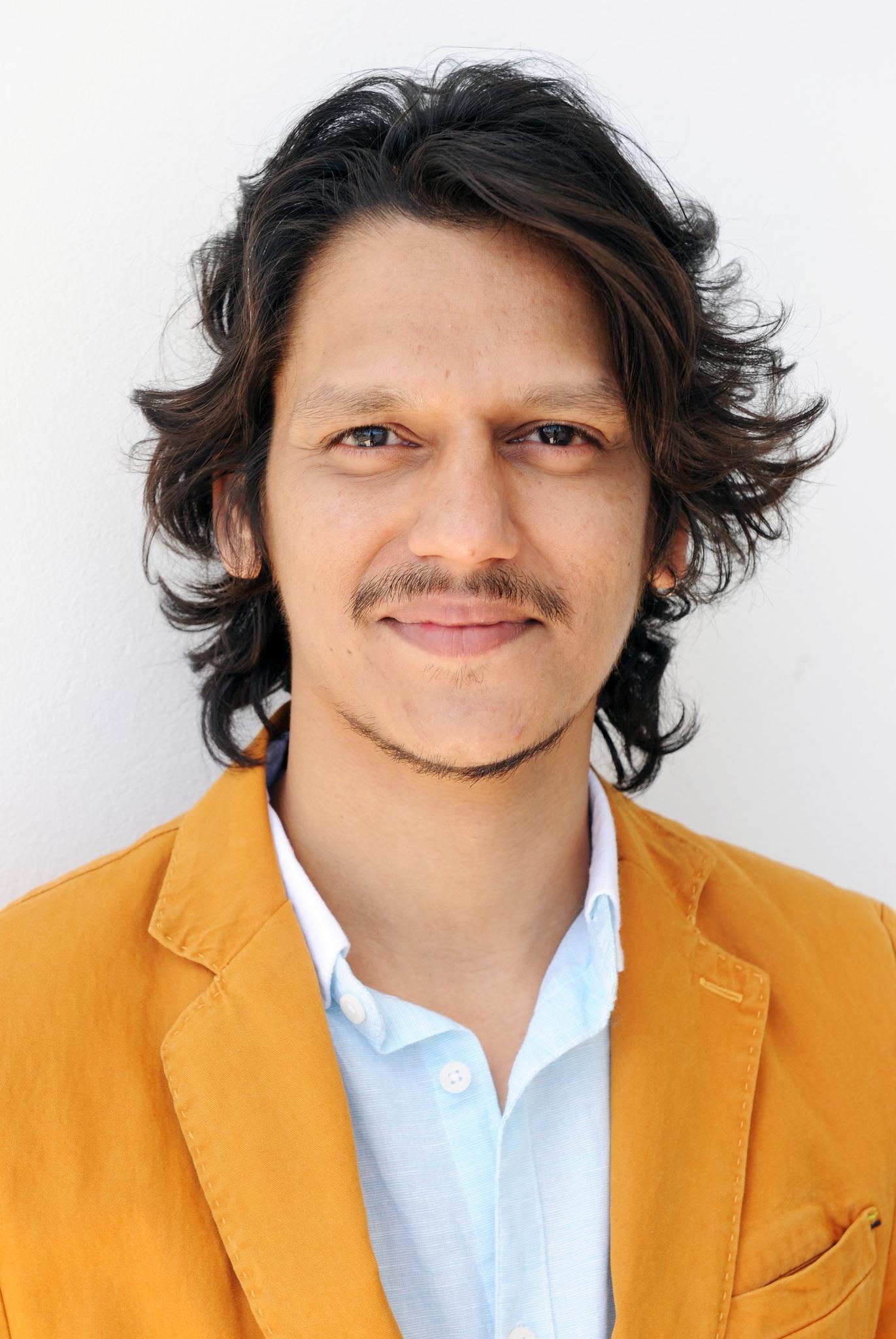

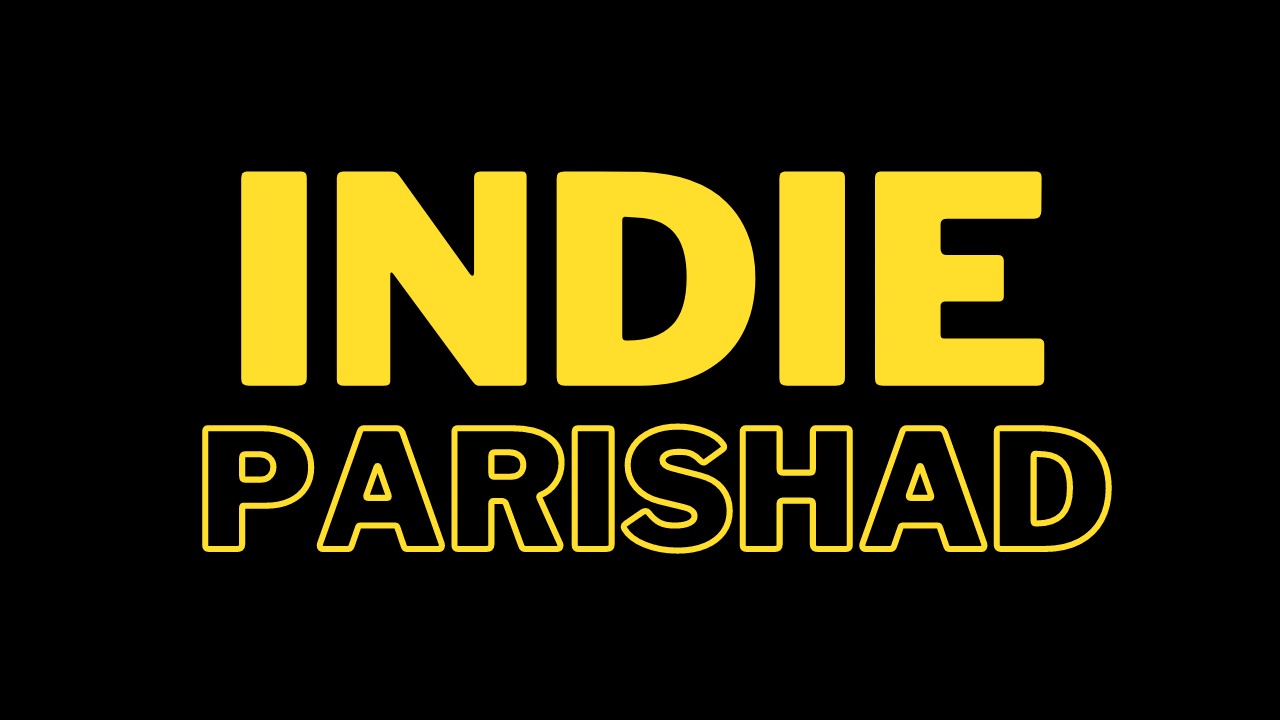
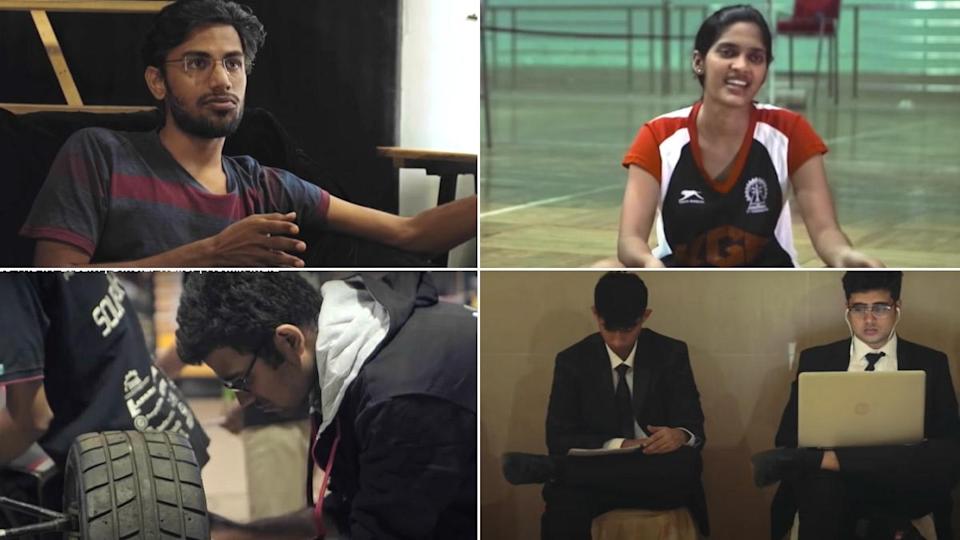
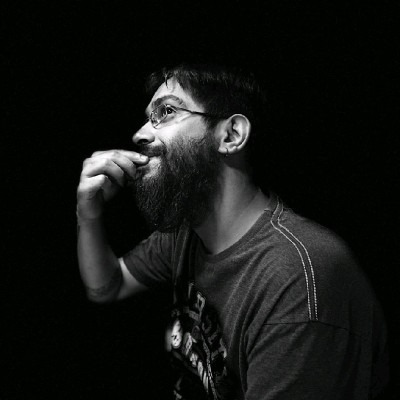



Leave A Comment
You must be logged in to post a comment.